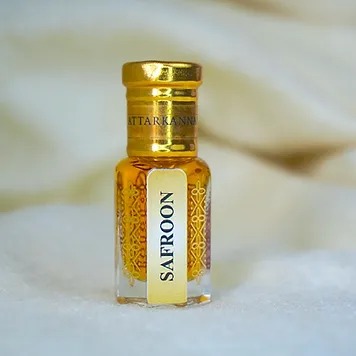Kannauj, a historic city located in Uttar Pradesh, India, is renowned for its centuries-old tradition of perfume making. Often referred to as the "Perfume Capital of India," Kannauj has been a significant center for the fragrance industry, and its perfumes, also known as "attar," are famous worldwide for their natural ingredients, rich history, and distinctive aromatic profiles.
The Origins of Kannauj Perfume
The art of Kannauj Perfume dates back to the Mughal era, and it is believed to have been introduced by the Mughals themselves. Historical records suggest that the Mughal emperors were fond of using perfumes and encouraged the practice of distilling essential oils from flowers, herbs, and spices. The craft flourished under royal patronage, and Kannauj became a hub for these artisanal perfumers.

Over the centuries, the techniques and formulas used in Kannauj's perfume production were perfected and passed down through generations. The traditional methods of perfume making have remained largely unchanged, relying on natural resources such as flowers, herbs, spices, and other botanicals. This ancient art has been preserved through the dedication of local artisans who have kept the craft alive even as the modern perfume industry evolved.
The Unique Craft of Attar Making
Unlike synthetic perfumes, which are commonly produced using chemicals and alcohol, Kannauj perfumes are primarily made from natural essential oils. The traditional method of producing attar (also known as ittar) involves a delicate and labor-intensive process that uses steam distillation to extract the fragrance from flowers, herbs, and spices.
The primary ingredients in Kannauj perfumes are often flowers like roses, jasmine, and mogra, along with ingredients such as sandalwood, agarwood, and vetiver. The flowers are harvested at the peak of their bloom, and the distillation process ensures that the perfume captures the true essence of each ingredient.
The perfume-making process involves slow distillation in copper stills, with the extracted oils being absorbed into the roots of sandalwood, which serves as the base. This method, combined with the expertise of Kannauj's artisans, results in perfumes that are long-lasting, complex, and deeply aromatic.
The Artisans Behind the Fragrance
Kannauj's perfume industry is rooted in the skills of local artisans who have mastered the ancient craft over generations. These artisans, known as "ittarwalas," often inherit their knowledge from their ancestors, learning the secrets of fragrance making from an early age. The process of making attar is passed down within families, with each generation refining the techniques and recipes to create a diverse range of fragrances.
The attar makers of Kannauj use their expertise to craft perfumes that range from floral, woody, spicy, to citrusy notes. Some attars are known for their calming and therapeutic properties, while others evoke a sense of luxury and elegance. The perfumes are often sold in traditional glass bottles, some of which are ornately designed, and are sometimes presented in beautifully crafted wooden boxes.
The Global Appeal of Kannauj Perfume
In recent years, mens attar perfume have gained international recognition for their authenticity, quality, and natural composition. While the city’s traditional attars were once known primarily in India, the growing global demand for natural and organic products has led to a renewed interest in Kannauj’s unique fragrance offerings.
Kannauj’s attars are now sought after by connoisseurs, perfumers, and fragrance enthusiasts from across the world. The perfumes have found a niche market in countries like the United States, the Middle East, and Europe, where people are increasingly seeking natural and chemical-free alternatives to mass-produced synthetic perfumes.
In addition to traditional attars, Kannauj perfumers have also ventured into producing high-end perfume oils and blends, catering to a growing global market for luxury and artisanal fragrances.
Kannauj perfume represents more than just a fragrance; it embodies centuries of tradition, culture, and craftsmanship. Its perfumes are a reflection of the region's rich heritage and natural beauty, offering a timeless, evocative scent that connects people to history, nature, and the art of perfume-making. As the world moves toward more sustainable and natural products, Kannauj’s perfumes stand as a testament to the enduring power of traditional craftsmanship and the fragrant beauty of nature.





Comments